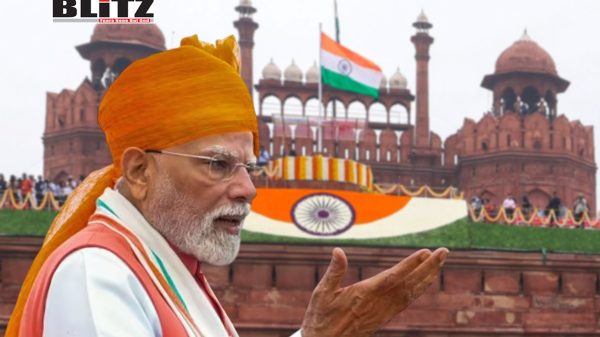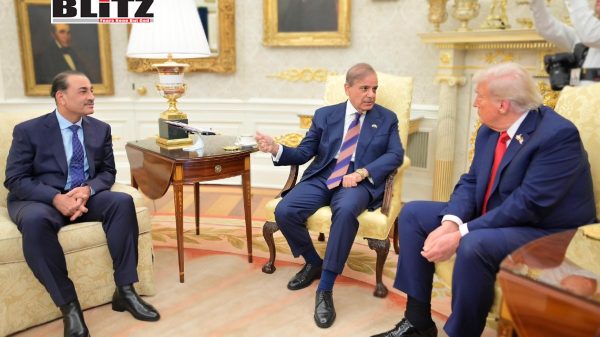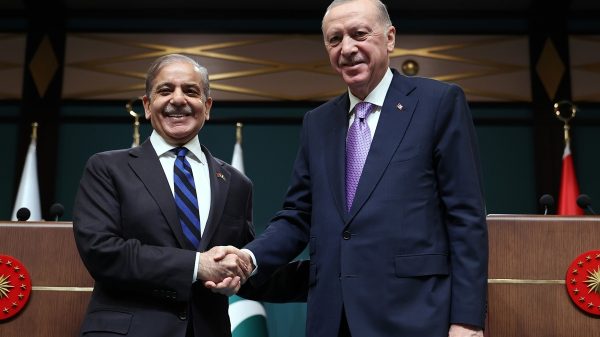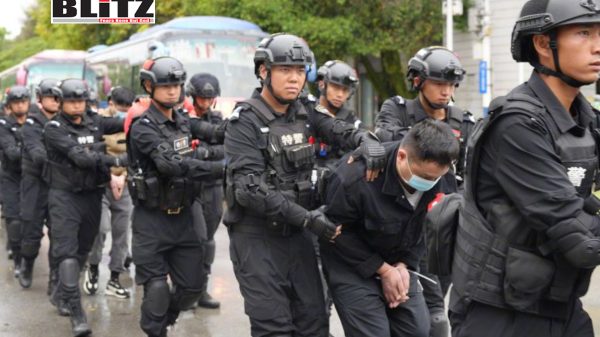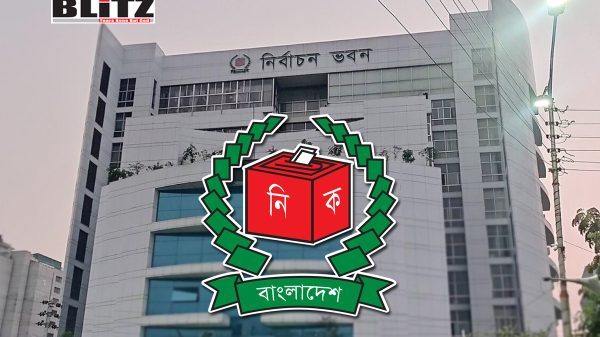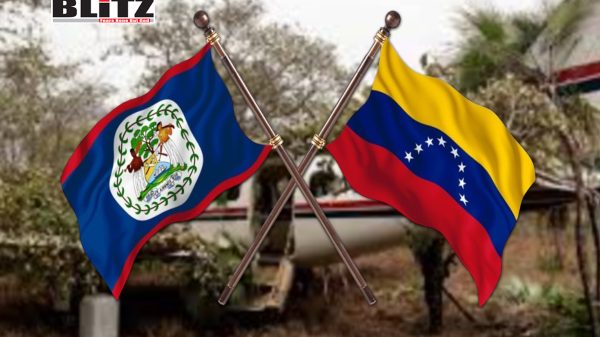Pakistan’s ISI trains Hamas terrorists while pretending to fight terror
- Update Time : Thursday, October 2, 2025
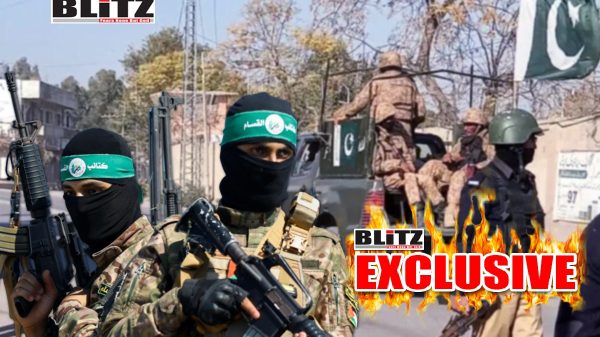
Pakistan’s ISI is secretly training Hamas terrorists in Pakistan-Occupied Kashmir, hosting jihadist leaders, and fueling terror across India and Israel – all while pretending to be a US ally in the fight against terrorism
Pakistan has long perfected the art of duplicity – presenting itself as a partner in the fight against terrorism while covertly nurturing jihadist groups to advance its geopolitical ambitions. This dangerous double game, tolerated for decades by Washington, is now entering a new and even deadlier phase: Islamabad’s intelligence service, the Inter-Services Intelligence (ISI), is secretly training Hamas operatives. While the West is trying to isolate Hamas following its atrocities on October 7, Pakistan is quietly offering the Gaza-based terror organization sanctuary, resources, and military expertise. This nexus between ISI, Hamas, and Pakistan’s political and military elites not only threatens Israel and India but also undermines US counterterrorism objectives and global security at large.
While US President Donald Trump recently hosted Pakistani Prime Minister Shehbaz Sharif and Army Chief Asim Munir at the White House, Islamabad is continuing its older tactics of playing double standards – if not outright betrayal. According to credible intelligence sources, Pakistan is not only allowing Hamas representatives to operate freely on its soil, attend public events, and forge alliances with local jihadist outfits, but ISI and a special unit of the Pakistan Army are training Hamas cadres in at least two secret camps, one of which is located in Pakistan-Occupied Kashmir (PoK). These actions undermine Western efforts to isolate Hamas and raise serious questions about whether the US should continue considering Pakistan a “major non-NATO ally”.
Sources reveal that three batches of Hamas “cadets”, each comprising about 20 fighters, are undergoing training by ISI.
On May 7, 2025, the South Asia Terrorism Portal reported, citing intelligence inputs, that Hamas had joined hands with ISI to destabilize India in the west and extend its footprint into Bangladesh and India’s northeast. Hamas leaders, often with ISI coordination, attended meetings in Bangladesh to radicalize youth and spread anti-India propaganda.
In February 2025, Hamas leaders were present at a major gathering in Pakistan-Occupied Kashmir (PoK). The event, titled “Kashmir Solidarity and Hamas Operation Al Aqsa Flood”, linked the causes of Kashmir and Palestine while calling for pan-Islamic unity against India and Israel.
Hamas leaders Khalid Qaddoumi, Naji Zaheer, Mufti Azam, and Bilal Alsallat participated alongside senior Lashkar-e-Taiba (LeT) and Jaish-e-Mohammad (JeM) commanders, including Talha Saif (Masood Azhar’s brother), Asghar Khan Kashmiri, and Masood Ilyas.
In the evening of October 14, 2023, Zeheer addressed the Mufti Mahmood Conference in Peshawar, a massive solidarity rally for Palestine, where Khaled Mashal appeared via video.
ISI also arranged for Hamas leaders to visit Bangladesh in October 2024, where the Islamist group Al Markazul Islami – historically linked to Al Qaeda – hosted an event attended by Hamas kingpins Khaled Quddumi and Khaled Mishal, as well as Pakistani clerics like Mufti Taqi Usmani and Maulana Fazlur Rehman.
Counterterrorism expert Jonathan Spyer noted that Hamas–ISI links are “worthy of further research”, a diplomatic way of highlighting an alarming trend. In reality, Pakistan’s embrace of Hamas mirrors its past patronage of the Taliban and Al Qaeda.
Hamas’s influence is also shaping Pakistan’s own military tactics. Inspired by Hamas’s October 7 massacre model, Pakistan has attempted to launch Hamas-styled rocket attacks on India – fortunately intercepted by Indian forces.
Even more troubling are reports that senior Hamas operatives traveled to PoK just two months before the Pahalgam massacre, where they allegedly met with Jaish-e-Mohammad terrorists. Israel’s Ambassador to India, Reuven Azar, linked the attack’s timing directly to those visits, underscoring the deadly consequences of Hamas–ISI cooperation.
The Middle East Media Research Institute (MEMRI) has documented extensive Hamas activity in Pakistan, particularly by Dr. Naji Zaheer, special representative of Hamas leader Khaled Mashal. Since October 7, Zaheer’s public profile in Pakistan has surged, with appearances at rallies alongside leaders of designated terrorist groups like LeT and JeM.
On October 14, 2023, Zaheer met Maulana Fazlur Rehman, chief of Jamiat Ulema-e-Islam-Fazl (JUI-F), in Peshawar. The meeting was attended by prominent Pakistani politicians, including former Senate chairman Raza Rabbani. That evening, Zaheer addressed the Mufti Mahmood Conference in Peshawar, with Khaled Mashal appearing via video to praise Pakistani Islamists for celebrating the October 7 massacre.
Subsequent rallies, including the Al-Aqsa Storm Conference in Quetta, drew participation from senior Pakistani clerics and politicians who openly glorified Hamas. Hamas leaders Khaled Mashal and Ismail Haniyeh repeatedly praised JUI-F’s role as “Palestine’s ambassador in Pakistan”.
Israel’s Ambassador to India, Reuven Azar, linked the Pahalgam massacre’s timing to the visits by Hamas leaders to Pakistan-Occupied Kashmir (PoK), where they reportedly met with Jaish-e-Mohammed terrorists.
These public endorsements are part of a broader ISI strategy: cultivating Hamas in Pakistan as it once did with Afghan jihadist groups. By sponsoring anti-Israel and anti-India propaganda, Islamabad aims to position itself as the epicenter of global jihadist solidarity.
Evidence of Hamas–Pakistan collaboration is overwhelming. In January 2024, Pakistan’s Senate hosted Hamas representative Dr. Khaled Qaddoumi, where Senator Mushahid Hussain (a close aide of Sharif and Munir) publicly praised Hamas as “the democratically elected organization of the Palestinian people”.
He boasted that Pakistan was the first Muslim country to donate US$1 million to Hamas.
At the direct urging of the Pakistan Army’s media wing, Qaddoumi was interviewed on GNN TV, where he threatened Israel by saying Israelis “will return in coffins”.
By mid-2024, Pakistani and Hamas leaders were meeting in Doha, again involving Lashkar-e-Taiba-linked politicians. Their agenda: to vow revenge for Ismail Haniyeh’s assassination and accuse the US of complicity.
Connections between Hamas and Pakistan’s political sphere is evidently proved. Along the years, representatives of this mega-terror outfit met several Pakistani envoys. For instance, Hamas representative Ali Baraka met then Pakistani Ambassador to Lebanon, Aftab Kohokhar in 2016 at the Pakistani Embassy in Beirut. In 2019 again, Hamas representative Dr. Ahmed Abdel Hadi met then Pakistani Ambassador Najib Durrani at the Pakistani Embassy in Beirut. Even recently, Pakistani Ambassador to Qatar, Lt Gen (Retd) Muhammad Aamer met senior Hamas spokesperson Basem Naim in Doha.
The Hamas–Pakistan nexus is not a passing alignment; it has deep roots. Over the years, Hamas leaders have been warmly received by Pakistani envoys in Lebanon, Qatar, and elsewhere. Pakistani officials, including retired generals-turned-ambassadors, have facilitated these ties.
Pakistan is once again playing a dangerous game that endangers global security. Just as it harbored Osama bin Laden while receiving billions in US aid, Islamabad now shelters and empowers Hamas while presenting itself as a counterterrorism partner. This duplicity cannot be ignored.
For Washington, the stakes are clear: Pakistan’s open courtship of Hamas – through ISI sponsorship, military training, and political endorsement -undermines US policy in the Middle East, jeopardizes Israel’s security, and fuels terrorism in South Asia. For India, the consequences are equally dire, as ISI’s Hamas connection adds yet another layer to Pakistan’s proxy war.
It is time for the United States and its allies to act decisively. President Trump must confront Shehbaz Sharif and General Asim Munir directly: Pakistan cannot remain a “major non-NATO ally” while serving as a training ground for Hamas. Washington should also press Islamabad to recognize Israel under the Abraham Accords framework – an act that could set an example for other non-Arab Muslim nations like Bangladesh to follow.
Recognition of Israel by Pakistan would mark a decisive break with its decades-long policy of anti-Semitism and terrorism sponsorship. More importantly, it would realign Pakistan with genuine peace and open the door to historic reconciliation. Such a bold move would not only weaken Hamas but could also earn President Trump the global acclaim – perhaps even the Nobel Peace Prize – that accompanies true statesmanship.
Until then, the world must understand: as long as ISI trains Hamas and Pakistan shelters jihadists, Islamabad will remain not an ally, but an enabler of global terror.
Please follow Blitz on Google News Channel



